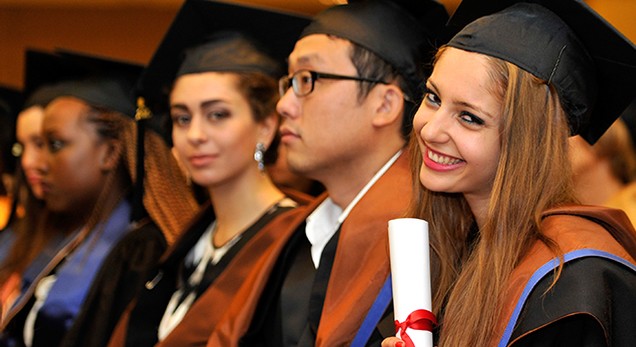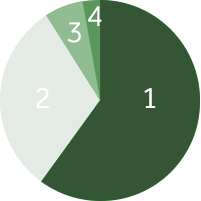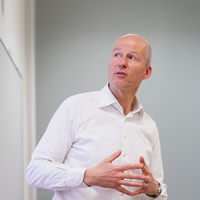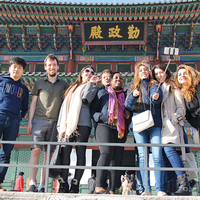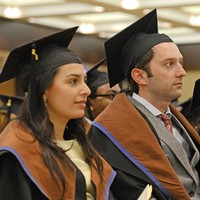Description des cours
-
MKG 615 – Consumer and Market Insight Consumer and Market insights is about understanding the consumers and assessing the market landscape in order to define the optimal strategy for a product/service. The objective of this course is to train the students on the key tools of Market Research, and develop their ability to think strategically, by identifying the right business questions, turning them into a concrete and clear learning plan, then understanding and defining consumer needs to come up with a strategic recommendation. Students will have the ability to use their analytical skills and strategic thinking to build insightful recommendations.6.00
-
MGT 657 – Logistics & Project Management This course provides a systematic overview of design, control and improvement of operations, projects, logistics and supply chain related management issues. It renders the rationale and practices of optimizing the global supply chain and leveraging it as a value-creating strategy to gain competitive advantage in the global marketplace. The project management key success factors will be presented, examined, discussed, and applied by the students on concrete projects. In the meantime, it addresses issues related to sustainability, quality management, and the challenges of establishing trust and collaboration amongst operation partners.6.00
-
COM 635 – Integrated Branding & Storytelling The course of Integrated Communication aims at giving the student the tools to analyze and develop brand communications initiatives. The course will look at the evolution of communication and advertising technique, focusing on the latest theories and approaches in digital era. The learning process will be based on theory, case studies and real-life classwork to learn how to develop a communication campaign, starting from the analysis of the business challenges to defining the consumer insight, briefing process, creative development and assessment. The key learning outcome of the course is giving the ability to the students to analyze communications, their effectiveness and manage the communication/creative process.6.00
-
ECO 610 – Global Economics & Development This course aims to examine the working of a national economy and the critical role that businesses play in it. It provides insights into the workings of economic policy and the issues discussed in current policy debates. It studies business cycles and the impact of policies on short-term fluctuations. It then turns to the longer term by examining economic growth and its drivers. It studies development and the strategies pursued by successful developing countries. It analyses the Sustainable Development Goals and contributes to a better understanding of the need for multilateral and regional economic cooperation and national economic policies for sustainable development. The course provides an understanding of challenges confronting the global economic order, impacts of the trade and investment policies, the role of financial system and the regional market integration.6.00
-
RES 700 A – Introduction to Research This module is designed to provide students a solid understanding of the research process with a foundation in research methods and techniques. It will introduce students to how to identify research questions, develop hypotheses, design research, and collect and analyze data. Students will also be introduced to different research designs, such as qualitative, quantitative, and mixed-methods approaches.6.00
-
MGT 620 – Change Management & ESG This course introduces students to organisational design and why, in today’s ever changing macro context, an organisation’s success is dependent on its ability to evolve structures, processes and people in an agile way. Topics include strategy, sustainability, ESG, organisational and individual performance management, leadership and change management.6.00
-
NEG 620 – Negotiation & Communication Skills Effective negotiation and communication are among the most valuable and sought-after skills both in strategic partnership development, stakeholder management and effective resolution of business conflict. Students will analyse the process in which two or more actors, with differing views and interests, engage in dialogue using bargaining, trade off and persuasive communication to reach agreement on issues of common concern. The course consists of a series of interactive modules, simulations, and role-play exercises offering a practical insight of the art of negotiation in business arena.6.00
-
MKG 610 – Global Marketing in the Digital World In a world of increased globalization and technological advancement, companies have had to rethink their marketing strategies, address the challenges stemming from digitalization, and seize the opportunities arising from operating in the digital age. In this course, students will gain an understanding of the foundations of global marketing and learn how to develop a marketing plan that takes into account the macroeconomic, cultural, and technological factors that affect companies in their effort to create brands that resonate with today’s customers. The program will emphasize the ways in which digital marketing, e-commerce, social media can be leveraged to engage with the company’s target audience and effectively market a product or service that creates value for stakeholders.6.00
-
MGT 630 – Turning Idea to Success Innovation can no longer be viewed as a sideshow. It is the way to do business and a key driver of sustainable growth. This module is designed to help students develop the skills and knowledge necessary to turn innovative ideas into successful businesses. Students will learn the importance of innovation for businesses, different types of innovation, how to identify and evaluate potential business opportunities, develop effective business plans, understand the importance of customer validation in business planning and execute on those plans to achieve their goals. The module will cover key topics such as innovation, business development, and business plan development, with a focus on practical application.6.00
-
RES 700 B – Research planning and preparation This module is designed to help students to plan and prepare their research projects(Capstone) by developing a clear, concise research proposal with problem statement, key research questions, research methodology, literature review, proposed outcomes. The research proposal forms the ‘gateway’ to the research (Capstone project) itself and the aim is to ensure that students are well planned to implement their Capstone projects.6.00
-
RES 700 C – Research Thesis / Capstone All graduate students at the IIG are entitled to complete a research thesis. Master’s thesis provides an opportunity for students to engage in high-level research focusing on an area of specialization within their program. In their thesis students apply the knowledge they have acquired in the Research Module (Introduction to Research Methodology RES 100A) while exploring the topic of their choice.30.00


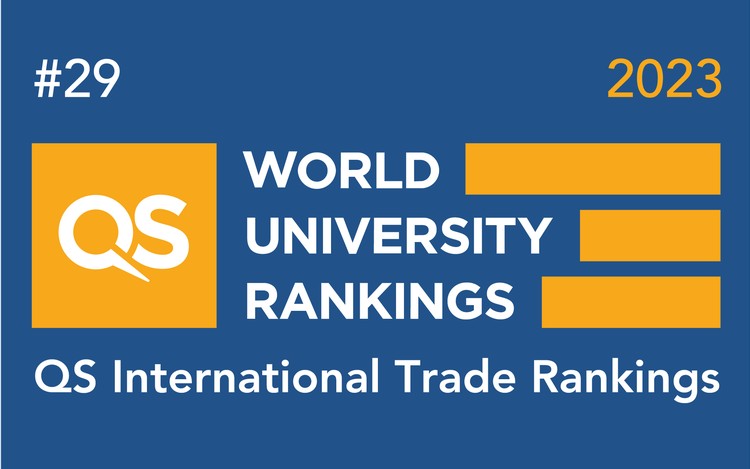

.PNG)
